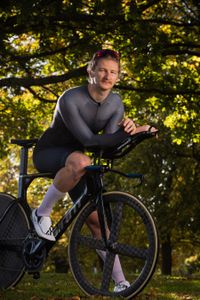Doping bans for cocaine and cannabis will be heavily cut down
The World Anti-Doping Agency will considerably reduce the time of bans for recreational drugs


Athletes caught using drugs like cocaine and cannabis will face much shorter doping bans under new rules.
The World Anti-Doping Agency (WADA) has approved plans to reduce the length of bans for recreational drugs use, arguing the substances often have no performance enhancing effects.
As part of the revised anti-doping code, which will be introduced in 2021 and informs the rules on fair play in sport around the world, bans for “substances of abuse” will be reduced to a maximum of three months, rather than the existing four-year sanction that his handed out for doping offences.
WADA spokesman James Fitzgerald told Cycling Weekly: “During the extensive two-year review process for the 2021 version of the World Anti-Doping Code, we received considerable stakeholder feedback related to substances of abuse, such as cocaine or cannabis. It was felt that the use of these drugs was often unrelated to sport performance.
“While the code does not prohibit the use of these drugs out of competition, sometimes a presence is detected at an in-competition test even though the use occurred in a social context with no effect.
“It was felt also that in cases where an athlete has a drug problem and is not seeking or benefitting from performance enhancement, the priority should be on the athlete’s health rather than on imposing a lengthy sporting sanction.”
Mr Fitzgerald added: “In addition, currently substantial resources are being spent arguing in hearings over the appropriate length of sanction in substance abuse cases. These resources could be better spent on anti-doping investigations or ADVR (anti-doping rule violations) that really do affect the level playing field of sport.”
The latest race content, interviews, features, reviews and expert buying guides, direct to your inbox!
Both cocaine and cannabis are included in the WADA list of prohibited substances in competition, which means any athlete testing positive for these drugs faces a four-year doping ban unless they can prove the rule violation wasn’t intentional.
In the cycling world, Classics superstar Tom Boonen tested positive for cocaine three times between 2007 and 2009 and was twice suspended from racing by his team but didn’t receive sanction from anti-doping bodies, with the Belgian later saying he had a problem with substance abuse.
Italian star Luca Paolini was thrown off the Tour de France in 2015 after testing positive for cocaine and he was handed an 18-month doping ban the following year.
Cycling's international governing body, the UCI, incorporate WADA rules into its anti-doping policy.
In its review of the anti-doping code, WADA said concerned stakeholders raised concern over recreational drugs, with cocaine use a particular problem.
Stakeholders raised concerns about athlete health in relation to these drugs, saying that health should be the priority where an athlete has a drug problem, not a performance enhancement problem.
Based on these concerns, WADA has agreed to change the rules included in its code as part of the wide-ranging review which will be implemented in 2021.
The new rule says that the ban will be reduced to a flat three months for any athlete that can prove the substance was taken out of competition and was unrelated to sport performance.
>>> Dr Richard Freeman claims he was ‘bullied by Shane Sutton into ordering testosterone’
The athlete can then reduce the period of ineligibility down to one month if they complete a rehabilitation programme, which addresses concerns about athlete health.
If an athlete can established that in-competition use of the drug was unrelated to sport performance, then the violation will not be considered intentional, which means a two-year ban will be handed out.
WADA’s foundation board and executive committee approved changes to the code during the WADA World Conference, held in Katowice, Poland from November 5-7.
Alex Ballinger is editor of BikeBiz magazine, the leading publication for the UK cycle industry, and is the former digital news editor for CyclingWeekly.com. After gaining experience in local newsrooms, national newspapers and in digital journalism, Alex found his calling in cycling, first as a reporter, then as news editor responsible for Cycling Weekly's online news output, and now as the editor of BikeBiz. Since pro cycling first captured his heart during the 2010 Tour de France (specifically the Contador-Schleck battle) Alex covered three Tours de France, multiple editions of the Tour of Britain, and the World Championships, while both writing and video presenting for Cycling Weekly. He also specialises in fitness writing, often throwing himself into the deep end to help readers improve their own power numbers. Away from the desk, Alex can be found racing time trials, riding BMX and mountain bikes, or exploring off-road on his gravel bike. He’s also an avid gamer, and can usually be found buried in an eclectic selection of books.
